Georgia’s Beginnings
Georgia, a country that sits at the crossroads of Europe and Asia, has a fascinating history that stretches back thousands of years. This is a place where different cultures and traditions have come together to create a unique and vibrant society.
The story of Georgia begins in ancient times. People first settled in this region around 3000 BC during the Bronze Age. These early inhabitants eventually formed various tribes, with the Colchians in the west and the Iberians in the east being two of the most prominent.
Georgia as a unified nation started to take shape in the 4th century BC under the rule of King Parnavaz I. This marked the beginning of a distinctive Georgian identity. Throughout its early history, Georgia had interactions with neighboring empires like the Romans and Byzantines, which left their mark on the country.
Independence and Influence
Georgia’s journey towards becoming a modern nation was not without its challenges. In the 11th century, King David IV, known as David the Builder, played a significant role in Georgia’s history. He expanded the kingdom’s borders and promoted cultural and societal growth. During this time, Christianity became the state religion, further strengthening Georgia’s unique character.
Over time, Georgia faced periods of foreign domination. In the 19th century, it became part of the Russian Empire. This had a profound impact on the country, as it struggled to maintain its distinct identity under Russian rule.
In 1918, Georgia declared its independence as a republic but faced political turmoil and conflict. Unfortunately, this independence was short-lived, and in 1921, Georgia was incorporated into the Soviet Union.
Russia’s Role in Georgia
Georgia’s relationship with Russia has been complex and at times strained. In recent history, the Russo-Georgian War in 2008 resulted in the breakaway regions of Abkhazia and South Ossetia becoming areas of dispute. These regions are recognized as independent by Russia but are considered part of Georgia by the international community.
Despite these challenges, Georgia remains committed to maintaining its sovereignty and pursuing a path of European integration. The country’s aspirations for EU and NATO membership reflect its desire to strengthen its ties with the West while maintaining its unique cultural identity.
Modern Georgia
In 1991, the collapse of the Soviet Union allowed Georgia to regain its independence. Since then, the country has worked hard to rebuild itself and establish a democratic society. It has faced challenges, including conflicts in the regions of Abkhazia and South Ossetia, but has remained determined to move forward.
Today, Georgia is a diverse and welcoming nation. Its history, with influences from both Europe and Asia, has created a unique cultural tapestry. Georgian hospitality is legendary, with locals often going out of their way to make visitors feel at home.
The People, Language, and Beliefs of Georgia
The People of Georgia
One of the most captivating aspects of Georgia is its people. Georgians are known for their warmth and hospitality. They take immense pride in welcoming guests, whether they are friends or strangers. This tradition of hospitality, known as “supra,” involves feasting, toasting, and celebrating life’s joys together.
Georgians are a diverse people, with various ethnic groups living within the country’s borders. The majority are ethnic Georgians, but there are also significant Armenian, Azerbaijani, and Russian communities, among others. This diversity adds to the richness of Georgian culture.
Languages in Georgia
The Georgian language, also known as Kartvelian, is the country’s official language and holds a special place in Georgian identity. It is unique, with its own alphabet and linguistic roots. Learning a few Georgian phrases can go a long way in earning the respect and appreciation of locals.
In addition to Georgian, other languages are spoken in Georgia due to its diverse population. Armenian, Azerbaijani, and Russian are among the most commonly spoken minority languages. English is also becoming increasingly popular, especially among the younger generation and in urban areas.
Religion and Beliefs
Georgia has a deep and enduring connection to Christianity. It was one of the first countries to adopt Christianity as the state religion in the 4th century AD. The Georgian Orthodox Church plays a central role in the spiritual and cultural life of the country.
Aside from Orthodox Christianity, Georgia is also home to a variety of religious beliefs and practices. There are Muslim communities, primarily among the Azerbaijani population, and small Jewish and Armenian Christian communities.
Throughout Georgia’s history, beliefs in supernatural forces and spirits have also played a role in daily life. Many Georgians hold a deep respect for nature and its spiritual significance. This respect can be seen in traditions like the veneration of sacred trees and natural sites.
Education and Learning
Education is highly valued in Georgia. The country has a strong tradition of scholarship and learning, dating back to ancient times. Today, Georgia boasts a well-developed education system with both public and private institutions. Tbilisi State University, founded in 1918, is one of the country’s leading universities.
Georgian students are often encouraged to pursue higher education, and many go on to excel in various fields, both at home and abroad. The education system places a strong emphasis on subjects like mathematics, science, and the humanities.
Georgia’s Culinary Delights: A Feast for the Senses
Georgian Cuisine
One of the most delightful aspects of visiting Georgia is experiencing its mouthwatering cuisine. Georgian food is a harmonious blend of flavors, spices, and textures, making it a feast for the senses. This cuisine has deep-rooted traditions and a history that spans centuries.
At the heart of Georgian cuisine is the concept of “supra,” a traditional feast where friends and family gather to share a variety of dishes. The centerpiece of many Georgian meals is khachapuri, a delectable cheese-filled bread that comes in various regional styles. Adjarian khachapuri, shaped like a boat and topped with a melting egg, is a must-try.
Another iconic Georgian dish is khinkali, hearty dumplings filled with spiced meat, mushrooms, or cheese. The art of eating khinkali involves savoring the savory broth trapped inside before enjoying the dumpling itself.
Walnut sauces, pomegranates, and aromatic spices like coriander and fenugreek are commonly used in Georgian cuisine, adding depth and complexity to the flavors. Grilled meats, known as mtsvadi, and flavorful stews such as chakhokhbili are also popular.
Georgian Wine
Georgia is one of the oldest wine-producing regions in the world, with a winemaking tradition that spans over 8,000 years. The country’s unique winemaking method, known as qvevri, involves fermenting wine in large earthenware vessels buried underground. Georgian wine is renowned for its distinct taste and complex flavors.
The Kakheti region in eastern Georgia is the heartland of Georgian winemaking, where you can find endless vineyards and wineries. Wine plays a central role in Georgian culture, with toasts and celebrations often accompanied by wine-drinking rituals.
Traveling in Georgia
Exploring Georgia is like embarking on a journey through time and nature. The country boasts diverse landscapes, from the snow-capped peaks of the Caucasus Mountains to lush valleys and pristine Black Sea coastlines. Adventure seekers can hike in the Svaneti region, while history enthusiasts can explore the ancient cave city of Uplistsikhe.
The capital city, Tbilisi, is a vibrant and dynamic metropolis with a mix of modern and traditional architecture. Its winding streets, colorful buildings, and lively markets offer a glimpse into everyday Georgian life.
The Georgian Spirit
Georgians are known for their warm and welcoming nature. The culture places a strong emphasis on family and community, and guests are often treated with immense kindness and generosity.
In terms of language, while Georgian is the official language, you’ll find that many Georgians, especially in urban areas, speak some English or Russian. Learning a few basic Georgian phrases can go a long way in connecting with the locals and enhancing your travel experience.
Georgia’s relationship with other nationalities is generally open and welcoming. The country has a history of diverse cultural influences, and this has created a society that is respectful and curious about other cultures.
Georgia: A Tapestry of Festivals, Music, and Mystical Landscapes
Festivals and Celebrations
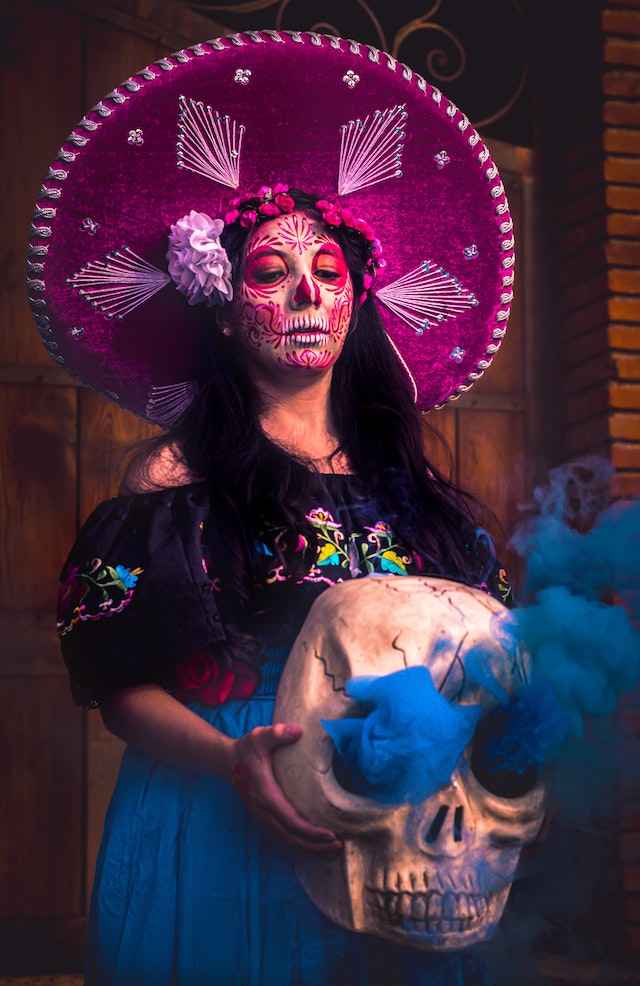
Georgia’s calendar is filled with vibrant festivals and celebrations, reflecting the country’s rich cultural heritage. One of the most famous is Tbilisoba, a festival dedicated to the capital city, Tbilisi. Held in October, it features music, dance performances, traditional crafts, and a captivating parade.
Another noteworthy celebration is Alilo, which takes place on January 7th, marking Orthodox Christmas. In Tbilisi, thousands of people dressed as Santa Claus march through the streets, distributing gifts to children and spreading holiday cheer.
For wine enthusiasts, the Tbilisi Wine Festival offers a chance to taste some of the finest Georgian wines. Held in October, this event showcases the country’s winemaking traditions and diverse wine regions.
You May Also Like These
Music and Dance
Georgian music and dance are integral parts of the country’s cultural identity. The three-part harmony of Georgian polyphonic singing, recognized by UNESCO as an intangible cultural heritage, is soul-stirring. The intricate harmonies and soaring melodies resonate with listeners, offering a glimpse into Georgia’s musical soul.
Traditional Georgian dances are equally captivating. The dancers’ precision and energy are breathtaking as they perform intricate choreographies in vibrant costumes. These dances often tell stories of love, bravery, and the country’s history.
Mystical Landscapes
Georgia’s landscapes are nothing short of enchanting. The country’s diverse geography includes towering mountain ranges, lush forests, serene lakes, and dramatic canyons. The Svetitskhoveli Cathedral, nestled in the ancient town of Mtskheta, is a UNESCO World Heritage Site and a must-visit for history enthusiasts.
For nature lovers, the Kazbegi National Park offers pristine wilderness and the opportunity to trek to the iconic Gergeti Trinity Church, which stands against the backdrop of the majestic Mount Kazbek. The stunning Uplistsikhe Cave Town and the cave monasteries of David Gareja are also architectural wonders hidden within Georgia’s mystical landscapes.
Georgia Today: Contemporary Culture, Art Scene, and Global Presence
Contemporary Culture
While Georgia holds deep-rooted traditions and history close to its heart, it’s also a country embracing the contemporary world with open arms. Georgian society has a youthful energy, and you’ll find a thriving modern culture alongside its rich heritage.
Tbilisi, the capital, is a hub of contemporary life. Its streets are adorned with street art, and the city’s vibrant nightlife includes clubs, bars, and live music venues where both local and international artists perform.
Georgians are passionate about sports, with football (soccer) being one of the most popular. The national team enjoys strong support, and matches are celebrated with enthusiasm and patriotic fervor.
Art and Creative Expression
Georgia has a burgeoning art scene that reflects the country’s diverse cultural influences and dynamic spirit. You can explore contemporary art galleries in Tbilisi, showcasing the works of Georgian artists who draw inspiration from their cultural heritage and the world around them.
The Georgian film industry has also gained international recognition. Directors like Nana Ekvtimishvili and Zaza Urushadze have received acclaim at prestigious film festivals for their thought-provoking films that explore themes of identity, love, and history.
Georgia on the Global Stage
Georgia, with its strategic location and rich culture, has played a unique role on the global stage. It is a country that seeks to build strong ties with the international community while preserving its distinctive identity.
Georgia’s aspirations for EU and NATO membership reflect its commitment to Western values and its desire to secure its place in the global community. The country actively participates in international organizations and has contributed to peacekeeping missions in conflict regions.
Georgia’s wine, which has been made for thousands of years, is gaining recognition in international markets. It is exported to various countries, sharing the unique flavors of Georgia with the world.
You May Also Like These
Conclusion: A Journey to Remember
As you explore the multifaceted tapestry of Georgia, from its ancient history to its modern culture, you’ll find a country that invites you to delve deeper. Georgia’s unique blend of traditions, contemporary life, and global engagement creates an enriching travel experience.
Whether you’re wandering through the ancient streets of Mtskheta, savoring the flavors of Georgian cuisine, or witnessing the breathtaking landscapes of Kazbegi, you’ll discover that Georgia is a place where past and present harmonize, leaving you with memories that will last a lifetime.
So, when you embark on your journey to Georgia, be prepared to be captivated by the mystique of this land, where history, culture, and the spirit of its people intertwine in a way that is both enigmatic and unforgettable.







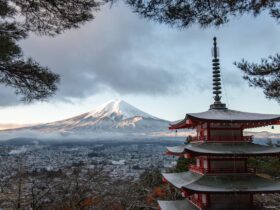

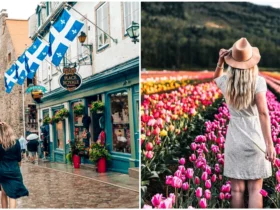


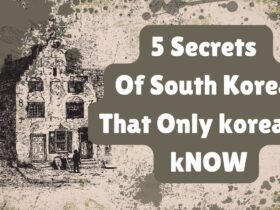

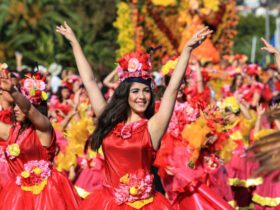



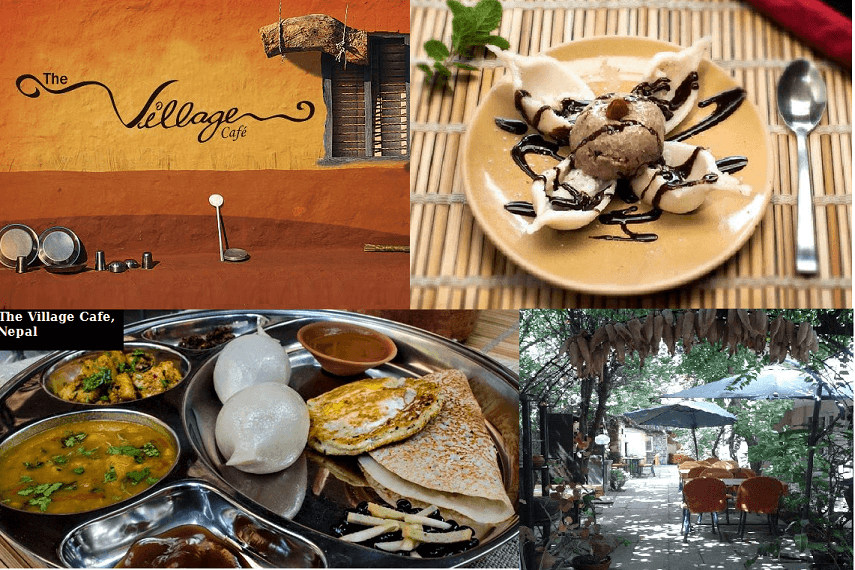
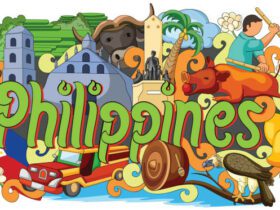



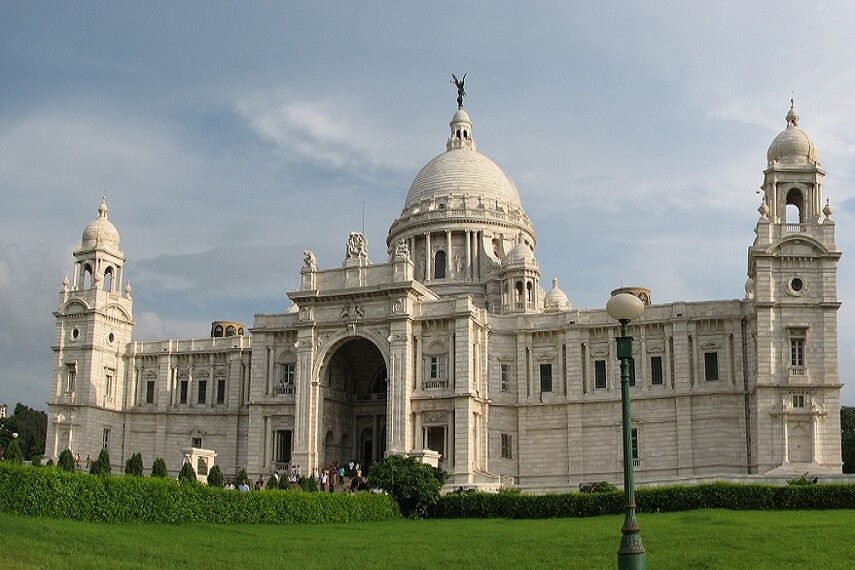
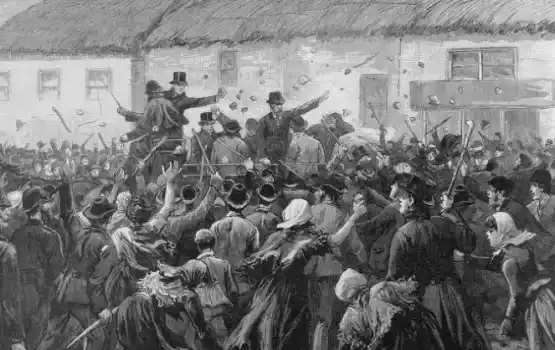
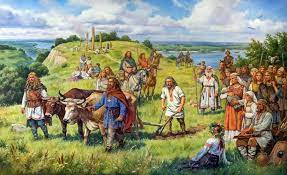





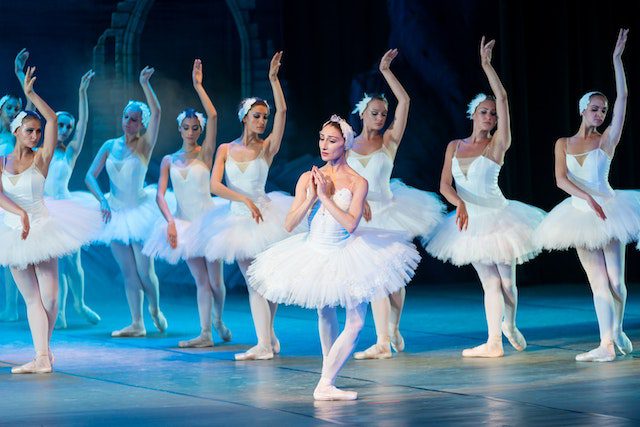
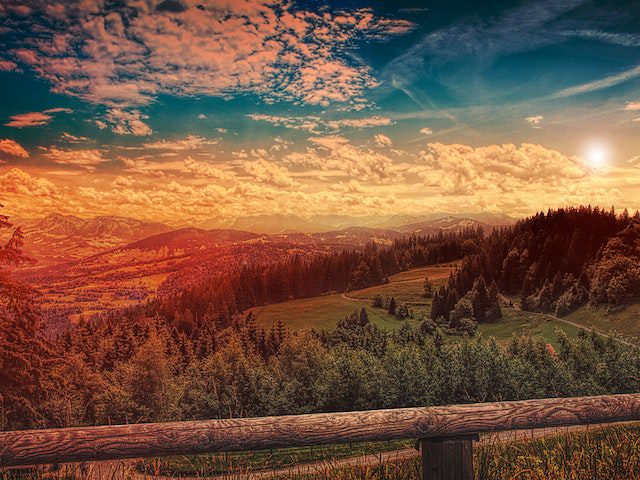
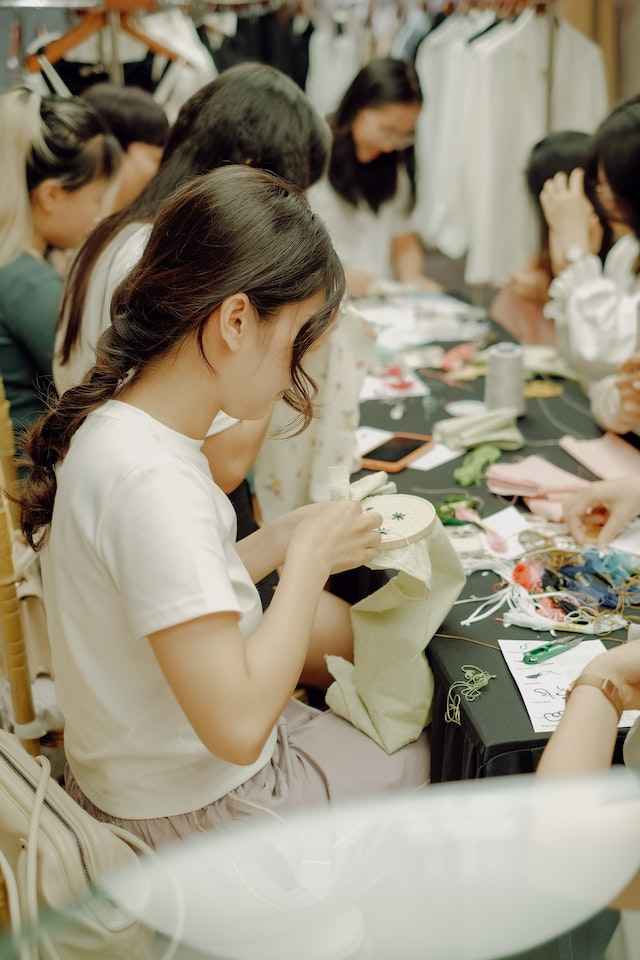








Leave a Reply
View Comments